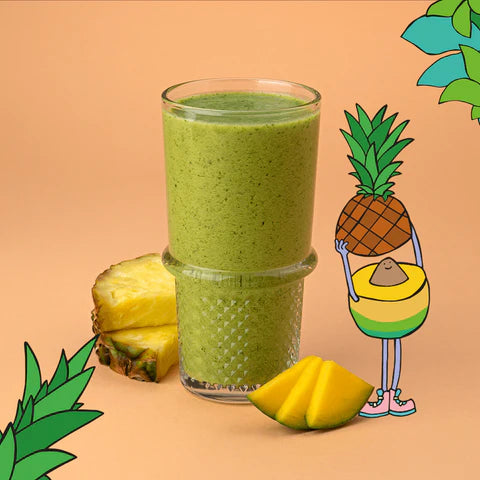
The Verdict
No, probably not imminent death. The traditional Inuit diet, for example, doesn’t include many veggies (if any at all). But cutting vegetables out of your life entirely will probably lead to a shorter and much more uncomfortable life. Why? Let’s find out.
Nutritional Deficiencies
A lack of veggies can lead to deficiencies in essential vitamins and minerals like vitamin C, vitamin A, folate, potassium, and magnesium. These nutrients play crucial roles in maintaining overall health and preventing chronic diseases, and that’s — coincidentally — why all Plenny meals have all 26 essential vitamins and minerals (1).
Increased Risk of Chronic Diseases
Skipping vegetables has been associated with an increased risk of chronic diseases such as heart disease, diabetes, and certain types of cancer. The antioxidants and phytochemicals found in vegetables help protect against these diseases.
Digestive Issues
Veggies have a bunch of fibre, and fibre helps to prevent issues like constipation and irregular bowel movements. It plays a crucial role in maintaining healthy digestion and promoting regularity.
Weakened Immune System
The vitamins and minerals in vegetables support a strong immune system. Not getting enough of these nutrients can make your body less able to fight off infections and illnesses.
Increased Oxidative Stress
Veggies pack antioxidants that battle stress and inflammation in your body. Without enough of these, your cells could get hurt more easily, upping the chances of serious health issues.
Vision Problems
Certain vegetables, like carrots and leafy greens, are rich in nutrients that promote eye health. Skipping them could increase the odds of vision issues down the road.
Brittle Bones
Certain veggies (leafy greens!) bring vitamin K and calcium, which is vital for strong bones. Skimping on these might mean weaker bones and a higher chance of getting fractures.
So?
So do you want to live a longer and healthier life? Then keep eating your vegetables and swap in a Plenny meal if you’re short on time or energy.
With more vitamins and minerals than your average vegetable variety (26 in total!) and a whopping 172 health benefits per meal, you can’t go wrong with a Plenny meal!
SOURCES
- Nutritional Deficiencies: Harvard T.H. Chan School of Public Health. "Vegetables and Fruits: Get Plenty Every Day." [Online] [Cited 2023 Aug 18] Available: Vegetables and Fruits | The Nutrition Source | Harvard T.H. Chan School of Public Health
- Increased Risk of Chronic Diseases: World Health Organization (WHO). "Nutrition." [Online] [Cited 2023 Aug 18] Available: https://www.who.int/news-room/fact-sheets/detail/healthy-diet
- Digestive Issues: Academy of Nutrition and Dietetics. "Health Implications of Dietary Fiber." [Online] [Cited 2023 Aug 18] Available: https://www.eatright.org/food/vitamins-and-supplements/nutrient-rich-foods/health-implications-of-dietary-fiber
- Weight Management Challenges: American Heart Association. "Vegetables and Fruits." [Online] [Cited 2023 Aug 18] Available: https://www.heart.org/en/healthy-living/healthy-eating/add-color/how-to-eat-more-fruits-and-vegetables
- Weakened Immune System: National Institutes of Health (NIH). "Nutrients Involved in Immune Function." [Cited 2023 Aug 18] [Online] Available: https://ods.od.nih.gov/factsheets/VitaminC-HealthProfessional/#h6
- Increased Oxidative Stress: National Center for Biotechnology Information (NCBI). "Role of Antioxidants in the Maintenance of Cellular Homeostasis." [Cited 2023 Aug 18] [Online] Available: https://www.ncbi.nlm.nih.gov/pmc/articles/PMC3614697/
- Vision Problems: American Optometric Association. "Foods for Healthy Eyes." [Online] [Cited 2023 Aug 18] Available: https://www.aoa.org/patients-and-public/caring-for-your-vision/diet-and-nutrition/foods-for-healthy-eyes
- Bone Health Issues: National Osteoporosis Foundation. "Calcium and Vitamin D: What You Need to Know." [Online] [Cited 2023 Aug 18] Available: https://www.nof.org/patients/treatment/calciumvitamin-d/





















 Toegevoegd aan winkelwagen
Toegevoegd aan winkelwagen















